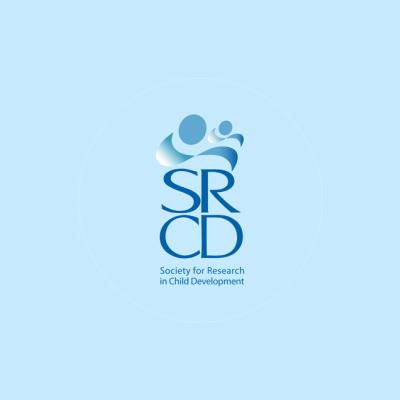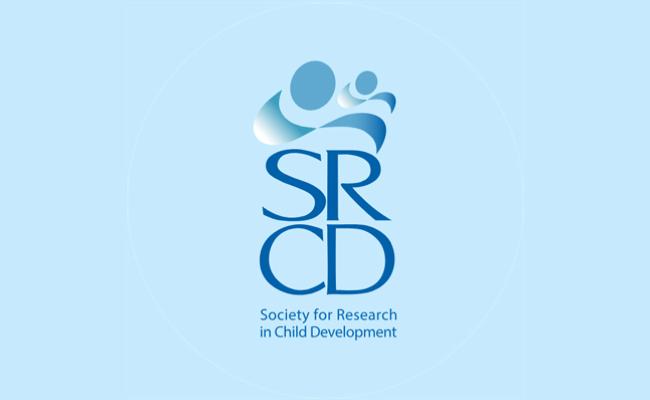Who We Are
Governing Council
The Governing Council is comprised of a President, President-Elect, Past President, Secretary, Treasurer, and At-Large members. The President, Secretary, and a subset of At-Large Members are elected by the members. The remainder of At-Large members are appointed by the Governing Council to ensure maximal diversity of representation. All Governing Council Members serve 6-year terms.
Committees
The Society has 16 standing and operational committees that contribute to a more vibrant Society and help advance child development research. Each committee has its own charge from SRCD’s Governing Council and generates its own activities.
Caucuses
Caucuses of SRCD support the goal of integrating diversity in the broader society, as outlined in Goal 3 of SRCD’s Strategic Plan.
Highlights Header
Get Involved with the Society
The History of SRCD
In 1925, the National Research Council of the National Academies of Science founded the Committee on Child Development which, in 1933, became the Society for Research in Child Development (SRCD). At the time, the Committee and then Society identified as SRCD’s goals “to stimulate and support research, to encourage cooperation among individuals engaged in the scientific study of child development, and to encourage applications of research findings.”
Over the intervening decades, these goals have persisted, with the Society’s Strategic Plan now framed more concisely:
The Society for Research in Child Development (SRCD) advances the developmental sciences and promotes the use of developmental research to improve human lives.
Headquarters
The Society’s original office was housed within the Center for Human Growth and Development at the University of Michigan. In 2011, SRCD formally separated from the University of Michigan and opened a separate headquarters based in Ann Arbor, Michigan USA.
In 1978, SRCD’s Governing Council voted to set up a separate Washington Liaison Office in Washington, DC USA. This office was temporarily closed in 1989 and subsequently reopened in 2004.
In 2015, as part of its Strategic Visioning process, the Governing Council of SRCD made the decision to move the Society headquarters to Washington, DC to increase its visibility and impact as an organization, merging the headquarters with the DC-based Policy Office. In 2017, SRCD moved to its present headquarters.
Journals
In 1927, the Society launched its first journal, Child Development Abstracts and Bibliography, which subsequently became Child Development, the premier journal in developmental science.
In 1935, Monographs of the Society for Research in Child Development was launched as an outlet for in-depth research studies drawing on rich, comprehensive datasets and has continued to provide a unique outlet for large-scale comprehensive research projects in the developmental sciences.
SRCD began publishing the Social Policy Report in 1994, a periodically released synthesis of policy research and its implications for policymakers.
SRCD’s youngest journal, Child Development Perspectives, was launched in 2007 with the intention of preparing brief, accessibly-written synthesized review articles on topics of current interest across developmental science.
SRCD has also issued a series of briefs and fact sheets, that are designed to be easily accessible overviews of research with important and timely policy implications.
Meetings
The first meeting of the Society for Research in Child Development was held in 1934 in Washington DC. Subsequent meetings were held in 1936, 1938, 1940, and 1946 before the now well-established routine of holding Biennial Meetings in odd-numbered years commencing in 1953 and continuing until the present. Historically, these meetings have been convened in the United States, with two meetings held in Canada.
In 2012, SRCD began holding Special Topic Meetings in the even-numbered years (the off-years from the Biennial Meetings). These Special Topic meetings are smaller in size and much more focused in scope. The Special Topic Meetings present opportunities for more intimate networking and information exchange and have proven especially valuable for students and early career attendees seeking opportunities to network with more senior figures in their research areas.
See complete lists of Biennial Meetings and Special Topic Meetings below.
Although the goals of the Society have remained constant over the years since its inception, the landscape of developmental science has changed dramatically in recent decades, as has the size and diversity of SRCD’s membership, the attendance at our Biennial Meeting, and the scope and impact of the research published in our journals. As the field has grown, the landscape of developmental science has changed dramatically in recent decades, as has the size and scope of SRCD’s membership.
SRCD now has over 5500 members hailing from over 60 countries. SRCD members also come from a diverse array of disciplines including Psychology, Anthropology, Education, Human Development, Neuroscience, Sociology, Economics, Linguistics, Social Work, Communications and more. Our members’ research spans ages, topics, approaches, and levels of analysis.
Today, SRCD’s governance and leadership have committed to re-invigorating the Society’s mission in a manner that reflects the needs, interests, and goals of contemporary developmental scholars.
Biennial Meeting Archive
Biennial Meeting Dates & Locations
| Dates | Year | Location |
|---|---|---|
| 1934 | National Research Council – Washington, DC, USA | |
| 1936 | National Research Council – Washington, DC, USA | |
| 1938 | University of Chicago – Chicago, Illinois, USA | |
| 1940 | Harvard Medical School – Boston, Massachusetts, USA | |
| 1946 | St. Louis, Missouri, USA | |
| 1953 | Antioch College – Yellow Springs, Ohio, USA | |
| 1955 | University of Illinois – Champaign, Illinois, USA | |
| 1957 | University of Iowa – Iowa City, Iowa, USA | |
| 1959 | NIH – Bethesda, Maryland, USA (25th Anniversary of the Society) | |
| March 15-18 | 1961 | Pennsylvania State University – State College, Pennsylvania, USA |
| April 10-13 | 1963 | University of California – Berkeley, California, USA |
| May 24-27 | 1965 | Minneapolis, Minnesota, USA |
| March 29-April 1 | 1967 | New York, New York, USA |
| March 26-29 | 1969 | Santa Monica, California, USA |
| April 1-4 | 1971 | Minneapolis, Minnesota, USA |
| March 29-April 1 | 1973 | Philadelphia, Pennsylvania, USA |
| April 10-13 | 1975 | Denver, Colorado, USA |
| March 17-20 | 1977 | New Orleans, Louisiana, USA |
| March 15-18 | 1979 | San Francisco, California, USA |
| April 2-5 | 1981 | Boston, Massachusetts, USA |
| April 21-24 | 1983 | Detroit, Michigan, USA (50th Anniversary of the Society) |
| April 25-28 | 1985 | Toronto, Ontario, Canada |
| April 23-26 | 1987 | Baltimore, Maryland, USA |
| April 27-30 | 1989 | Kansas City, Missouri, USA |
| April 18-20 | 1991 | Seattle, Washington, USA |
| March 25-28 | 1993 | New Orleans, Louisiana, USA |
| March 30-April 2 | 1995 | Indianapolis, Indiana, USA |
| April 3-6 | 1997 | Washington, DC, USA |
| April 15-18 | 1999 | Albuquerque, New Mexico, USA |
| April 20-23 | 2001 | Minneapolis, Minnesota, USA |
| April 24-27 | 2003 | Tampa, Florida, USA (70th Anniversary of the Society) |
| April 7-10 | 2005 | Atlanta, Georgia, USA |
| March 29-April 1 | 2007 | Boston, Massachusetts, USA (75th Anniversary Observance) |
| April 2-4 | 2009 | Denver, Colorado, USA |
| March 31-April 2 | 2011 | Montreal, Quebec, Canada |
| April 18-20 | 2013 | Seattle, Washington, USA |
| March 19-21 | 2015 | Philadelphia, Pennsylvania, USA |
| April 6-8 | 2017 | Austin, Texas, USA |
| March 21-23 | 2019 | Baltimore, Maryland, USA |
| April 7-9 | 2021 | Virtual |
| March 23-25 | 2023 | Salt Lake City, Utah, USA |
| April 30-May 3 | 2025 | Minneapolis, Minnesota, USA |
| April 8-10 | 2027 | Atlanta, Georgia, USA |
| March 22-24 | 2029 | St. Louis, Missouri, USA |
Special Topic Meeting Archive
Special Topic Meeting Dates, Locations, and Topics

